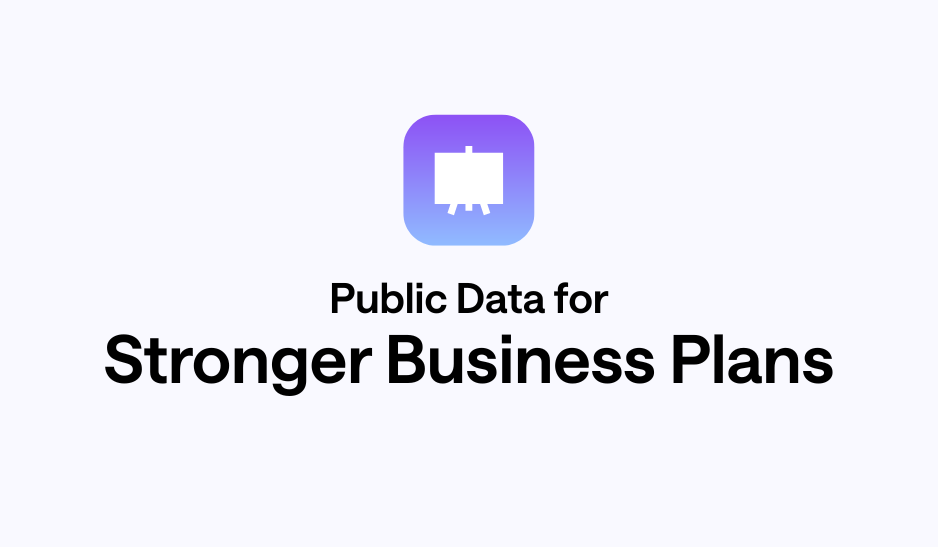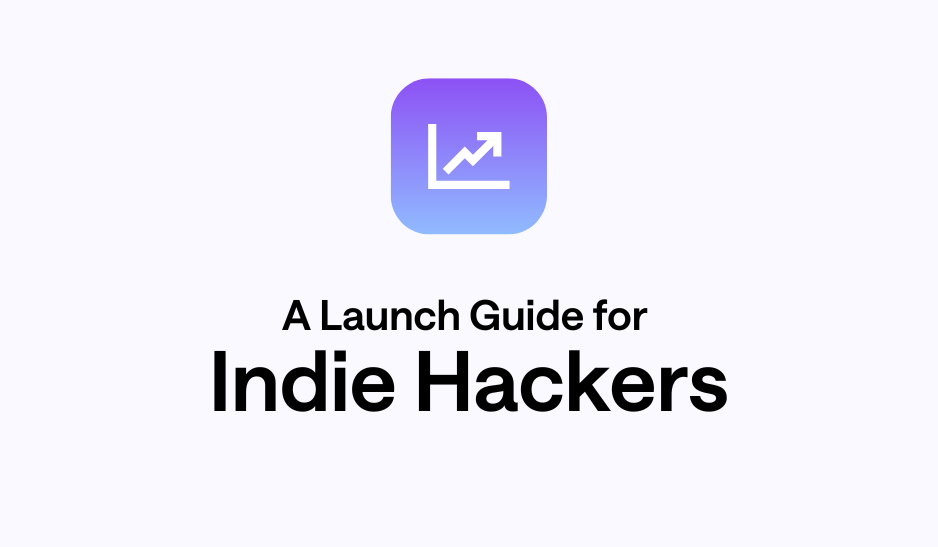Top Business Idea Validation Tools for Startup Founders
Launching a startup involves significant risk. One of the most common reasons for failure is not poor execution or a lack of funding, but building a product for a market that doesn't exist. According to this report, 42% of failed startups cited "no market need" as a primary reason for their shutdown. This means more than one-third of ventures invest time, capital, and resources into creating solutions for problems that customers either don't have or aren't willing to pay to solve.
Business idea validation is the process of testing a concept before committing to building it. It is the critical first step to de-risk a new venture, shifting the foundation from a guess to a data-supported hypothesis. Proper validation ensures that there is a real, addressable market for your proposed product or service.
This article provides a guide to the most effective business idea validation tools available to entrepreneurs, founders, and strategists. The goal is to help you select the right tool to gather the evidence needed to build a business that people will actually buy, starting with foundational market data analysis.
Instantly Analyze and Validate Your Business Ideas
The modern approach to idea validation utilizes real-world data, rather than relying solely on anecdotes or survey opinions. Cambium AI is a platform designed for founders who need fast, reliable answers to critical market questions without a data science background. It allows you to directly query large-scale public datasets to confirm market viability from day one.
-1.png?width=3200&height=2400&name=In%20Post%20Blog%20Images%20(6)-1.png)
How Cambium AI Validates Your Idea With Data
The process is straightforward: you ask questions about your target market, audience demographics, or competitive environment in plain English. Cambium AI processes the query against authoritative datasets and returns charts, maps, and data-backed answers instantly.
Consider an entrepreneur planning a direct-to-consumer brand for premium, sustainable baby products. To identify viable launch markets, they need to find geographic areas with a high concentration of their target customers: affluent, young families. Instead of relying on guesswork, they can ask a direct question:
"Show me the US counties with a high number of households with children under age 6, a median household income over $150,000, and a large population aged 25-39."
In response, Cambium AI generates an immediate, visual map highlighting the specific geographic areas that meet these criteria. This single query provides quantitative evidence of market concentration, using public data. This allows the founder to confidently focus marketing spend, identify ideal customer profiles, and build a data-supported business case for investors.
.png?width=1920&height=1440&name=In%20Post%20Blog%20Images%20(53).png)
Key Features for Founders
Cambium AI’s features are built to address the specific pain points of business idea validation.
-
Natural Language Queries: This removes the technical barrier to data analysis. Founders can validate ideas without needing to know SQL, Python, or how to manipulate complex spreadsheets. You can ask complex questions as if you were using a search engine. Learn how it works.
-
Reliable Public Datasets: Answers are derived from authoritative sources like the U.S. Census Bureau and the American Community Survey. This provides a foundation of fact, removing the speculation inherent in small-scale surveys.
-
Interactive Charts and Maps: Visualizing data allows founders to quickly identify market opportunities, spot geographic trends, and understand demographic concentrations. This makes it easier to build a business case, define your target customer profile, and strengthen communications with potential investors.
What Sets It Apart
The primary advantages of using Cambium AI for idea validation are speed and data reliability, without requiring technical expertise or high costs. While other tools help you ask a small group of people what they think, Cambium AI lets you analyze the entire market to see what the data actually says. It provides the function of a market research analyst without the associated hiring costs and project timelines.
See how it works. Request a quick demo.
Other Validation Tools to Consider
After establishing a data-backed market need with a tool like Cambium AI, other platforms can help validate different aspects of your business, such as user feedback or product messaging. These tools are complementary, serving a secondary purpose once you have confirmed a viable market exists.
SurveyMonkey
-
Overview: A widely used platform for creating and distributing surveys to gather opinions, preferences, and self-reported behaviors directly from a target audience.
-
Use Case: After identifying a market for your product or service, you could use SurveyMonkey to send a 10-question survey to those in your target counties. You might ask about their current spending habits or which features they would value most in a subscription service.
-
Key Features:
-
Pre-built survey templates for various research types.
-
Audience panel for purchasing responses from specific demographics.
-
Basic results analysis and reporting dashboards.
-
-
Pricing: Team Advantage plans start at approximately $25 per user per month. View current pricing.
-
Limitations: This tool is best for gathering opinions, which can be biased and often do not reflect actual purchasing behavior. The results are qualitative and should not be used as a substitute for quantitative proof of market demand.
Unbounce
-
Overview: A landing page builder designed for marketers and founders to quickly create, publish, and test marketing pages without needing a developer.
-
Use Case: Build a simple "coming soon" page for your business idea that describes the core value proposition. You can then run a small digital ad campaign, driving traffic to the page and measure interest based on the conversion rate of email sign-ups.
-
Key Features:
-
Drag-and-drop page builder with customizable templates.
-
A/B testing capabilities for headlines, images, and calls to action.
-
Integrations with email marketing and CRM platforms.
-
-
Pricing: Plans start at approximately $99 per month for the Launch tier. View current pricing.
-
Limitations: This tool is effective for testing a marketing message and building an early email list. However, it does not validate the underlying market size or total addressable market. A high sign-up rate confirms effective marketing copy, not necessarily a viable long-term business model.
LivePlan
-
Overview: A business planning software that guides entrepreneurs through creating business plans, financial forecasts, and investor pitches.
-
Use Case: Once you have validated the market demand with Cambium AI and gathered initial user feedback with a survey, LivePlan can help you structure that information into a formal business plan. You can project revenue based on the market size data you uncovered.
-
Key Features:
-
Step-by-step business plan builder.
-
Financial forecasting tools for sales, cash flow, and balance sheets.
-
Industry-specific benchmarks to compare your forecasts against.
-
-
Pricing: Standard subscription is approximately $20 per month. View current pricing.
-
Limitations: LivePlan is a tool for organizing and presenting your validation research, not for conducting it. It assumes you have already done the foundational work of confirming a market exists; it does not provide the primary data itself.
How to Choose the Right Business Idea Validation Tool
Selecting the right tool depends on the stage of your idea and the question you need to answer. A structured approach starts with the most fundamental question.
Start With Your Goal: Market Data or User Opinion?
The first distinction to make is between market data and user opinion.
-
Market Data (provided by Cambium AI) tells you what is, based on real-world demographics, economic activity, and population statistics from sources like the Census Bureau. It is quantitative and objective.
-
User Opinion (provided by tools like SurveyMonkey) tells you what people say they will do. This is qualitative and subjective, often influenced by biases.
Foundational validation should always begin with hard data to confirm a viable market exists. Before asking people if they would buy your product, you should first confirm that a sufficient number of people in your target demographic exist and have the purchasing power to do so. After confirming the "what," you can move on to asking "why" with qualitative tools.
What to Look for in a Validation Tool
When evaluating a business idea validation tool, prioritize these criteria:
-
Accessibility: The tool should not require a technical background. Look for platforms with natural language inputs and a clear user interface that democratizes data access.
-
Data Reliability: Ensure the tool pulls from authoritative, up-to-date public data sources. Your conclusions are only as good as the underlying data.
-
Speed to Answer: The right tool provides answers in minutes, not days or weeks. This allows for rapid iteration on your idea based on quantitative feedback.
Ready to Validate Your Idea?
Validating a business idea is the most important action a founder can take to increase their chances of success. It is the disciplined process of replacing assumptions with facts. The core choice is simple: do you want to start with a guess based on opinions or with confidence based on data? By starting with a quantitative analysis of the market, you build your business on a solid foundation, ensuring you are solving a real problem for a real audience.
Stop guessing. Validate your business idea with real market data in the next five minutes.
.png)

